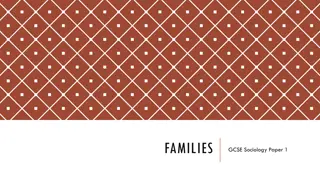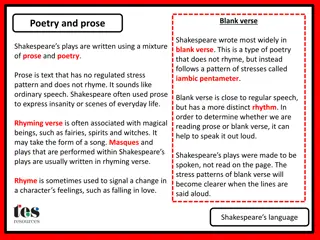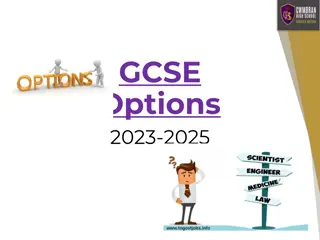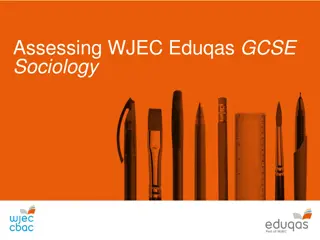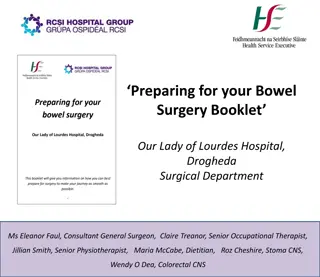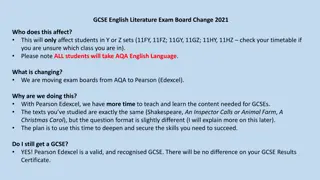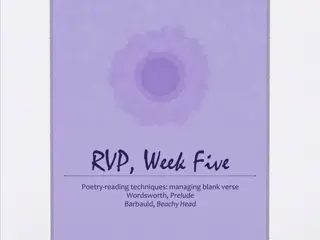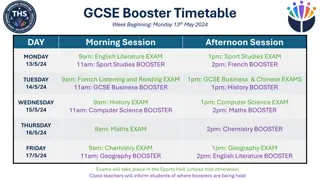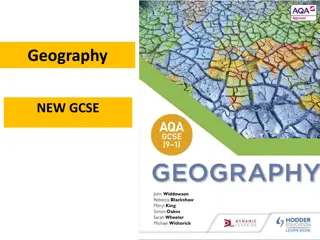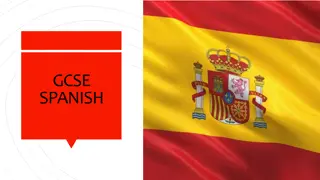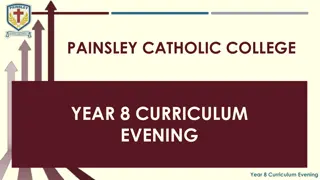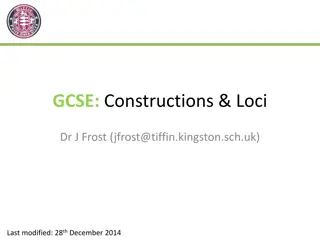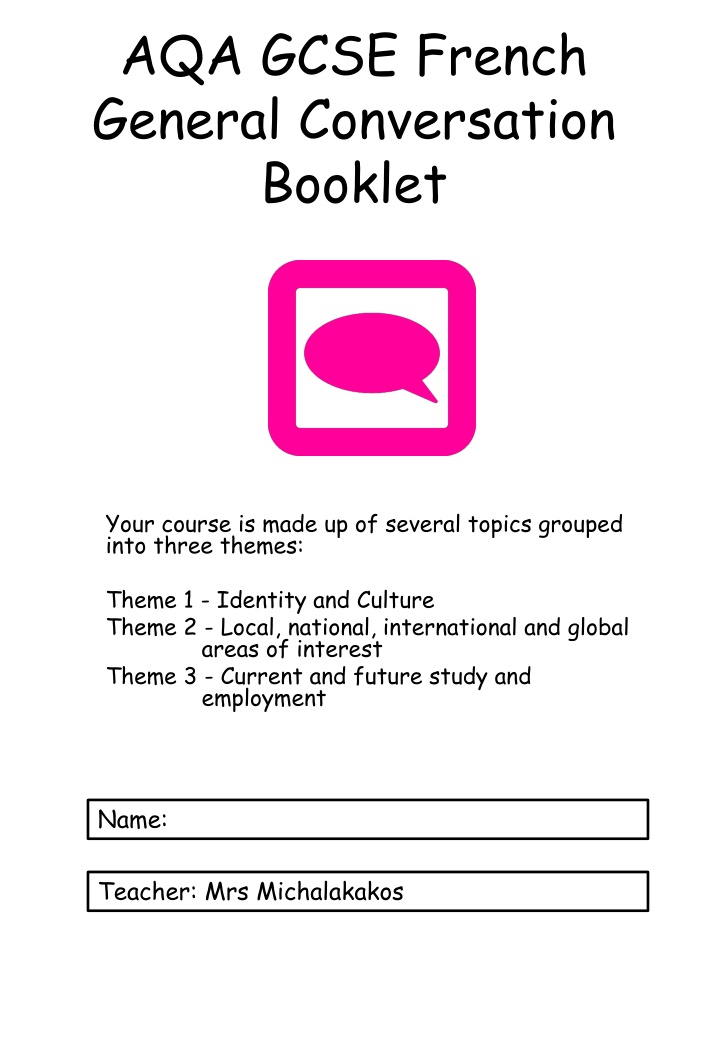
French General Conversation Booklet - Themes, Topics, and Speaking Test Overview
Explore the AQA GCSE French General Conversation Booklet covering themes like Identity and Culture, Local and Global Interest, and Study/Employment. The booklet outlines topics such as Family, Technology, Travel, and more. Learn about the test sections - Role-play, Photo-card, and General conversation. Prepare for the speaking test to engage in conversations, narrate events, and express opinions fluently.
Download Presentation

Please find below an Image/Link to download the presentation.
The content on the website is provided AS IS for your information and personal use only. It may not be sold, licensed, or shared on other websites without obtaining consent from the author. If you encounter any issues during the download, it is possible that the publisher has removed the file from their server.
You are allowed to download the files provided on this website for personal or commercial use, subject to the condition that they are used lawfully. All files are the property of their respective owners.
The content on the website is provided AS IS for your information and personal use only. It may not be sold, licensed, or shared on other websites without obtaining consent from the author.
E N D
Presentation Transcript
AQA GCSE French General Conversation Booklet Your course is made up of several topics grouped into three themes: Theme 1 - Identity and Culture Theme 2 - Local, national, international and global areas of interest Theme 3 - Current and future study and employment Name: Teacher: Mrs Michalakakos
Themes and Topics Theme 1 - Identity and Culture Topic 1: Me, my family and friends Relationships with family and friends Marriage/partnership Topic 2: Technology in everyday life Social media Mobile technology Topic 3: Free-time activities Music Cinema and TV Food and eating out Sport Topic 4: Customs and festivals in French-speaking countries/communities Theme 2 - Local, national, international and global areas of interest Topic 1: Home, town, neighbourhood and region Topic 2: Social issues Charity/voluntary work Healthy/unhealthy living Topic 3: Global issues The environment Poverty/homelessness Topic 4: Travel and tourism Theme 3 - Current and future study and employment Topic 1: My studies Topic 2: Life at school/college Topic 3: Education post-16 Topic 4: Jobs, career choices and ambitions 2
The test will be divided into three sections 1 Role-play Approx. 2 minutes. 15 marks Based on a stimulus card, to be prepared by the student immediately before the test during their preparation time. Students will carry out one role-playing situation. 2 Photo-card 2 or 3 minutes, 15 marks Based on a stimulus card, to be prepared by the student immediately before the test in the supervised preparation time. Students will discuss one Photo card. 3 General conversation 3-5 or 5-7 minutes, 30 marks The teacher will conduct a conversation based on the two themes which have not been covered on the Photo card. A similar amount of time should be spent on each theme. The student will choose the first theme; the second theme is the remaining theme which has not been covered in the Photo card part of the test. This ensures that aspects of all three themes are covered in the Speaking test. 3
The General Conversation You will take part in a conversation, asking and answering questions and exchanging opinions. You will narrate events (tell a story) and be able to speak spontaneously, responding to unexpected questions or points of view. You will keep the conversation going by using repair strategies. You will produce extended sequences of speech. You need to express and justify your opinions. You need to use a variety of vocabulary and grammatical structures, including some more complex forms, with reference to past, present and future events. Try to use accurate pronunciation and intonation. My chosen theme: Topics I feel most comfortable with: 4
General conversation mark scheme Level Mark Communication A speaker who consistently develops responses in extended sequences of speech. Narrates events coherently when asked to do so. Conveys information clearly at all times, giving and explaining opinions convincingly. 5 9-10 A speaker who regularly develops responses in extended sequences of speech. Usually narrates events when asked to do so. Almost always conveys information clearly, giving and explaining opinions. 4 7-8 A speaker who develops some responses in extended sequences of speech. Sometimes narrates events when asked to do so. Usually conveys information clearly, giving and often explaining opinions. 3 5-6 A speaker who usually gives quite short responses but occasionally gives extended responses. Occasionally narrates events briefly when asked to do so. Usually gives clear information but lacks clarity from time to time. Gives opinions, some of which are explained. 2 3-4 A speaker who tends to give quite short responses, but with occasional attempts at longer responses. He/she has only limited success in narrating events. There may be a few occasions when he/she is unable to answer successfully or where responses are very unclear. Gives opinions. 1 1-2 Communication does not reach the standard required for Level 1 at this tier. 0 0 Level Mark Range and accuracy of language Excellent language with a wide variety of linguistic structures and a wide range of vocabulary. References to past and future, as well as present, events are made confidently. There are few minor errors and other errors occur when complex structures and/or vocabulary are attempted. 5 9-10 Very good language with some variety of linguistic structures and a range of vocabulary. References to past and future, as well as present, events are generally successful. Any errors are only minor or occur when complex structures and/or vocabulary are attempted. 4 7-8 Good language with some attempts at more complex structures which are usually successful. References to past and future, as well as present, events are made and are sometimes successful. There may be minor errors and occasional more serious ones, but they do not generally impede comprehension. 3 5-6 Generally good language which involves mainly simple linguistic structures and vocabulary, with some repetition, but with attempts to use more complex linguistic structures and more varied vocabulary. There is some success in making reference to past and future, as well as present, events. Although there may be errors they do not generally impede comprehension. 2 3-4 Reasonable language which uses simple structures and vocabulary and may be repetitive at times. Any attempts to make reference to past or future events may have only limited success. There may be frequent errors, which may occasionally impede communication. 1 1-2 The language does not meet the standard required for Level 1 at this tier. 0 0 5
General conversation mark scheme Level Mark Pronunciation and intonation 5 5 Consistently good pronunciation and intonation throughout. 4 4 Good pronunciation and intonation with only occasional lapses. 3 3 Generally good but with some inconsistency in more challenging language. 2 2 Generally good but some inconsistency at times. 1 1 Pronunciation generally understandable with some intonation. 0 0 Pronunciation and intonation do not reach the standard required for Level 1 at this tier. Level Mark Spontaneity and fluency Excellent exchange in which the speaker reacts naturally to the questions asked and has an air of spontaneity. Responds promptly and speaks with some fluency, though not necessarily with that of a native speaker. 5 5 4 4 Very good exchange in which the speaker usually reacts naturally to the questions asked and is often spontaneous. Usually responds promptly and there is some flow of language. 3 3 Good exchange in which the speaker sometimes reacts naturally to the questions asked, but may at times rely on pre-learnt responses. There may be some hesitation before a reply but the delivery generally has a reasonable pace. 2 2 Generally good exchange in which the speaker shows some spontaneity, but also relies on pre-learnt responses. Sometimes hesitates and may not be able to respond to some questions. 1 1 Reasonable exchange in which the speaker shows a little spontaneity, but much of what is said involves pre-learnt responses. The flow is often broken by hesitation and delivery can be quite slow at times. 0 0 Spontaneity and fluency do not reach the standard required for Level 1 at this tier. 6
Use the complex structures pack to help you. Is your language rich enough? I have used the following tenses: Present: Perfect: I have included a variety (2 or 3 examples of each) of: subject pronouns (je/tu/il/elle/on/nous/vous/ils/elles) descriptions (with at least 5 adjectives) quantifiers/ intensifiers, e.g : tr s, assez, beaucoup, peu, trop opinion phrases, e.g: mon avis, je pense que/je crois que/je trouve (que) comparatives/superlatives linking words, e.g: et, mais, cependant time expressions, e.g. demain, normalement, hier, justifications e.g: parce que, car, puisque reflexive verbs e.g: il s appelle, je me l ve I have included the following complex structures: (see your pack for help) direct/indirect object pronouns Near Future: Future: Imperfect: Conditional: Pluperfect: other: present participle, including use after en apr s avoir + infinitive relative pronouns (qui, que, o , lequel, auquel, duquel) emphatic pronouns (moi/toi/lui ) use of y/en avant de + infinitive adverbs (regular and mieux, le mieux) negatives (ne ...plus, ne jamais, ne rien, ne que, ne personne) use of depuis with present and imperfect tenses I have checked that my pronunciation is accurate word order is accurate You can hear that my adjectives have the correct agreement or the correct irregular form (eg. vert/ verte, beau/ belle) I have the correct tense for each question the perfect tense has the correct part of avoir or tre. (Mrs Van De Tramp + reflexive verbs use tre) the past participles are accurate: Is it an irregular past participle? the stems and endings of my verbs are accurate the pronunciation of my tenses is clear 7
Theme 1: Identity and culture Topic 1: Me, my family and friends 1 Parle-moi un peu de toi. 2 C est quoi un bon ami, pour toi? 3 Parle-moi de ta famille. 4 Tu t entends bien avec ta famille? Pourquoi? 5 Quelles sont les avantages des familles nombreuses? 6 Quelles sont les inconvenients des familles nombreuses? 7 Qu est-ce que tu aimes faire avec ta famille? / tes amis? 8 Qu est-ce que tu vas faire ce week-end avec ta famille? / tes amis? 9 Est-ce que tu es sortie r cemment avec ta famille? / tes amis? C tait comment? Comment tais-tu quand tu tais plus jeune? 10 11 Quelle personne admires-tu le plus? Pourquoi? 1 Tu voudrais te marier dans l avenir? 14 Quelles sont les qualit s d un bon/ une bonne partenaire? Topic 2: Technology in everyday life 15 Que fais-tu quand tu es connect (e)? 16 Tu partages souvent des photos ou des vid os? 17 Quelles sont les avantages des r seaux sociaux? 18 Quelles sont les inconvenients des r seaux sociaux? 19 Que penses-tu des tablettes? 20 Combien de temps est-ce que tu passes sur ton portable? 21 Tu passes combien de temps devant un cran? 8 22 Est-ce que vous utilisez souvent un ordinateur?
Theme 1: Identity and culture Topic 3: Free-time activities 23 Quel genre d missions aimes-tu? 24 Est-ce que tu regardes beaucoup de s ries? 25 Qu est-ce que tu as regard r cemment? Comment tu l as trouv ? 26 Aimes-tu aller au cin ma ou pr f res-tu regarder un film chez toi? 27 Quel est le meilleur film que tu as vu? 28 Quels genres de films aimes-tu? 29 Est-ce qu il y a un film que tu voudrais voir? Pourquoi? 30 Qui est ton acteur/actrice pr f r (e)? 31 Qu est-ce que tu aimes lire? 32 Tu es sportif? Quels sports fais-tu? 33 Qu est-ce que tu penses des livres num riques? 34 Qu est-ce que tu lisais quand tu tais petit(e)? 35 Parle-moi du dernier livre que tu as lu. 36 Quel genre de musique aimes-tu? 37 Comment est-ce que tu coutes de la musique? 38 Tu vas souvent aux concerts de musique? 39 Quel est ton repas pr f r et pourquoi? 40 Manges-tu quilibr ? 41 Quel est le repas le plus important pour toi? 42 Qu est-ce qu on peut faire pour viter l ob sit ? 43 Quels sont les avantages du fast-food? 44 Et les inconv nients? 45 Tu aimes la cuisine fran aise? 9
Theme 1: Identity and culture 46 Est-ce que tu manges souvent au restaurant? 47 Est-ce que tu grignotes entre les repas? 48 Tu manges souvent en famille? Pourquoi? 49 Le petit d jeuner c est important? 50 Que penses-tu des v g tariens? 51 Les jeunes mangent trop de sucre. Tu es d accord? Topic 4: Customs and festivals in French-speaking countries/communities 52 Que fais-tu pour f ter ton anniversaire? 53 Qu est-ce que tu as fait l ann e derni re? 54 Qu est-ce que tu as re u comme cadeaux? 55 Comment vas-tu f ter No l? 56 Qu est-ce qu on mange en France pour le repas de No l? 57 Quelle est ta f te pr f r e et pourquoi? 58 Comment est-ce que tu la f tes et avec qui? 59 Qu est-ce que vous mangez et buvez? 60 Que font les fran ais le 14 juillet? 61 Quelles f tes fran aises existent aussi chez toi? 62 Il y a des traditions diff rentes? 63 C est quoi le Mardi Gras? 10
Theme 2 - Local, national, international and global areas of interest Topic 1: Home, town, neighbourhood and region 1 Parle-moi de ta ville. 2 Tu y habites depuis combien de temps ? 3 Tu habitais o avant ? Quels sont les diff rences ? 4 Qu est-ce qu il y a dans ta ville? 5 Comment est ta r gion? 6 Qu est-ce que tu aimes / n aimes pas ? Pourquoi ? 7 Qu est-ce qu il y a faire pour les jeunes ? 8 Qu est-ce que il y a comme attractions touristiques ? 9 Quelle est ta ville pr f r e? 10 Comment serait ta ville de r ves? 11 O aimerais-tu vivre si tu avais le choix ? Pourquoi ? 12 Tu pr f res habiter en ville ou la campagne? 13 Qu est-ce que tu vas faire ce weekend dans ta ville? 14 Qu est-ce que tu as fait la derni re fois que tu es sorti(e) dans ta ville? Quel est le pire de ta ville? 15 16 Comment pourrait-on am liorer ta ville? Topic 2: Social issues 17 Que fais-tu pour aider les autres? 18 Qu est-ce que tu connais comme organisations humanitaires ou caritatives? Connais-tu quelqu un qui fait du travail b n vole? 19 20 Qu est-ce que tu as l intention de faire l avenir pour aider les autres? 11
Theme 2 - Local, national, international and global areas of interest 21 Est-ce que tu as des amis qui fument? Qu en penses-tu? 22 Pourquoi est-ce qu ils fument ton avis? 23 Pourquoi se drogue-t-on? 24 L alcool, est-il un probl me chez les jeunes? Topic 3: Global issues 25 Comment est la vie d un SDF? 26 Quelles sont les causes de la pauvret ? 27 Comment r duire le nombre de sans-abris qui dorment dans la rue? 28 Quand tu n as pas le moral, qu est-ce que tu fais pour te changer des id es? Tu te sens stress (e) quelquefois? Quand en particulier? 29 30 Qu est-ce qui est important pour toi dans la vie? 31 Quel est le plus grand probl me pour la plan te? 32 Que devrait-on faire pour sauver la terre? 33 Quelles sont les cons quences du r chauffement de la plan te? 34 Que fais-tu pour prot ger l environnement? 35 Comment peut-on conomiser de l eau? 36 Qu est-ce qu on fait chez-toi pour r duire les d chets la maison? 37 Comment peut-on conomiser de l lectricit ? 38 Comment est-ce qu on pourrait r duire la pollution? 39 Le commerce quitable est important pour toi? 40 Si un produit est bon march , tu l ach tes? 12
Theme 2 - Local, national, international and global areas of interest 43 Est-ce qu il est important d acheter les produits verts? 44 Tu es d j all (e) un festival de musique ou un grand v nement sportif? Quels sont les avantages de ces v nements? 45 46 Quels en sont les inconv nients? 47 Comment est-ce qu on pourrait r duire les d chets dans ta ville? Topic 4: Travel and tourism 48 O vas-tu normalement quand tu pars en vacances? 49 Que fais-tu quand tu es en vacances? 50 Parle-moi de tes derni res vacances d t . 51 O vas-tu aller cet t ? 52 Qu est-ce que tu vas faire pendant les vacances? 53 O allais-tu en vacances quand tu tais petit? 54 Que faisais-tu? 55 Tu aimes les vacances actives? 56 Parle-moi de tes vacances de r ve. 57 Si tu avais le choix, tu voyagerais comment pour aller en vacances? 58 Tu as d j log dans un h tel? C tait comment? 59 Parle un peu de ton s jour. 60 As-tu d j mang dans un restaurant l tranger? C tait comment? 61 Tu aimes faire les magasins quand tu pars en vacances? 62 Qu est-ce que tu as achet la derni re fois que tu es parti(e) en vacances? Est-ce que tu as eu une exp rience n gative pendant les vacances? 63 64 Pourquoi est-ce que les vacances sont importantes? 13
Theme 3 Current and future study and employment Topic 1: My studies 1 Quelles sont tes mati res pr f r es et pourquoi? 2 Est-ce qu il y a des mati res que tu n aimes pas? Pour quelles raisons? 3 Est-ce que les langues devraient tre obligatoires? 4 Dans quel cours tu apprends le plus? Pourquoi ton avis? 5 Qu est-ce que tu tudiais l cole primaire? 6 Est-ce qu il est important de travailler dur ton avis? 7 Quelles sont les qualit s d un bon tudiant, ton avis ? 8 Que pourrais-tu faire pour am liorer tes notes ? Topic 2: Life at school/college 9 Parle-moi de ton coll ge. 10 Parle-moi de ta journ e scolaire. 11 Qu est-ce que tu aimes ton cole? 12 Et qu est-ce que tu n aimes pas? 13 Parle-moi des r glements dans ton cole. Sont-ils justes ou injustes? 14 Qu est-ce que tu penses de l uniforme scolaire? 15 Que changerais-tu si tu tais le directeur/ la directrice de ton cole? 16 Comment sont les professeurs? 17 Quelles sont ton avis les qualit s les plus importantes chez un prof ? 18 Que penses-tu du redoublement? C est une bonne id e? 19 Quelles sont les diff rences entre le syst me scolaire en France et le syst me scolaire britannique? Qu est-ce que tu fais pour viter le stress au coll ge? 20 21 Tu aimerais partir en change scolaire? Pourquoi / Pourquoi pas? 14
Theme 3 Current and future study and employment Topic 3: Education post-16 22 Que feras-tu apr s tes examens? 23 Qu est-ce que tu esp res faire plus tard? 24 Tu as l intention de continuer tes tudes l universit ? Pourquoi (pas)? 25 Quels sont les avantages de faire un apprentissage? 26 Tu aimerais prendre une ann e sabbatique? Pourquoi (pas)? 27 Que ferais-tu? Topic 4: Jobs, career choices and ambitions 28 Dans quel secteur voudrais-tu travailler? 29 Quel m tier voudrais-tu faire? Pourquoi? 30 Quel est le mieux de ce travail? 31 Et le pire? 32 Quelles sont les qualit s n cessaires pour travailler dans ce secteur? 33 Parle-moi de tes qualit s personnelles. Tu serais un(e) bon(ne) employ (e)? Qu est-ce que tu ne voudrais pas faire comme travail? 34 35 Est-ce que tu as un petit boulot? C est comment? 36 Est-ce que tu as fait un stage en entreprise? C tait comment? 37 Comment serait ton travail id al? 38 Quelles sont tes ambitions? 39 Est-ce que le salaire est important? Pourquoi (pas)? 40 Voudrais-tu travailler l tranger? Pourquoi (pas)? 15
HOW TO DO WELL IN YOUR SPEAKING EXAM 1. DEVELOP YOUR ANSWERS and use connectives to link your ideas (there should be a minimum of 3 elements to each of your answers). Think about where/ why/ how/ when something happens. Include opinions and justify your points of view. 2. INCLUDE A VARIETY OF TENSES you can develop a single answer this way eg: Normalement, je fais mais hier j aifait par contre demain je vais faire 3. USE IMAGINATIVE VOCABULARY stay away from those boring words like nice, good, interesting. Expand your range of adjectives. 4. USE A VARIETY OF STRUCTURES you have been given a list of these. Try to include as many as you can. 5. INCLUDE THE HARDER GCSE TENSES particularly irregular forms. Use combinations of the perfect and the imperfect. Include several examples of the proper future tense and the conditional (not just je voudrais...). This will wow the examiners. 6. ANSWER THE QUESTION without repeating it back to the examiner 7. ASK A QUESTION you cannot get full marks without one. 8. ACCEPT THAT MISTAKES ARE TOTALLY NORMAL just focus on the conversation and not on your mistakes. Mistakes WILL HAPPEN. Examiners are far more interested in what you can do than what you can t. 16

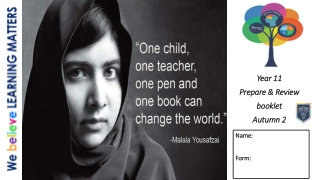
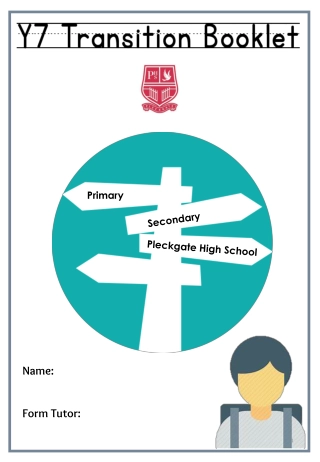
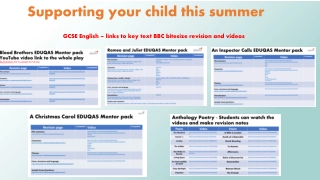
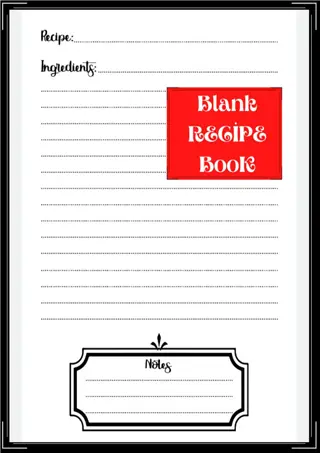

![[✔PDF✔⚡] ✔DOWNLOAD✔ Blank Recipe Book For Holiday Season: My Holiday Recipe](/thumb/68037/pdf-download-blank-recipe-book-for-holiday-season-my-holiday-recipe.jpg)

